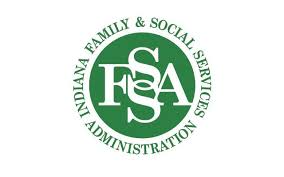
UNDATED – FSSA’s Division of Aging and Office of Medicaid Policy and Planning submitted a request to the U.S. Centers for Medicare and Medicaid Services to allow attendant care providers to incorporate transporting individuals on the Aged & Disabled and Traumatic Brian Injury waivers to non-emergency medical appointments, while also accompanying them during their appointments to provide companionship and help ensure information is understood.
This flexibility will also help to mitigate additional health risks by limiting their exposure to those outside their immediate families and caregivers.
Beginning on April 1, 2021, attendant care providers may provide this transportation benefit as part of the care they currently give to our vulnerable members. The flexibility granted by CMS will allow the benefit to continue for six months after the end of the federal public health emergency.
Attendant care providers may bill for the time they provide services during trips and appointment visits. Escorting of participants does not include mileage or other costs not associated with the provision of personal care. While this change is in effect starting April 1, 2021, there will be an additional publication in the upcoming weeks to detail a modifier that will need to be utilized for these claims after the system modification is completed. Prior to the system modification and notification to providers, no modifier is needed for claims to adjudicate properly. Please stay tuned for the upcoming publication explaining the modifier and when it will be required at a later date.
Attendant Care Service Definition has been updated to provide the following direction regarding transportation:
Transportation to-and-from community events with companion services provided during the course of transportation to medical appointments.
Examples of Reimbursable Attendant Care Transportation Services:
- Transportation to-and-from community events, including but not limited to:
- Daily errands
- Grocery shopping
- Participation in community activities
- Transportation to non-medical appointments
- The attendant care aide may accompany the participant in the NEMT (non-emergency medical transport) van and assist with activities of daily living, including but not limited to:
- Assistance with ambulation (sitting, standing, walking)
- Assistance with transfers between vehicle and medical appointment, transfers from a waiting room to medical office, transfers from vehicle to home.
- Assistance with mobility during meeting with medical professional
- Assistance with mobility when returning home from medical appointment
- Assistance with toileting during course of medical trip (to-and-from and during medial appointment)
- Assistance with eating during course of medical trip (to-and-from and during medical appointment)
- Providing companionship activities or hands-on assistance while the attendant care aide is driving the participant to-and-from medical appointments.
- The attendant care aide is not prohibited from driving a participant to a medical appointment; however, in order to receive reimbursement, the attendant care aide must also preform hands-on activities throughout the course of the trip (to-and-from medical appointment).
- The aide could also provide companionship activities including assisting the participant in navigating the medical appointment.
The attendant care aide may bill for the time it takes to perform each hands-on service for the participant.
Examples of Non-Reimbursable Attendant Care Transportation Services:
- Only driving participant to-and-from medical appointment without providing any hands-on care to the participant unless the aide is also providing companionship activities including assisting the participant in navigating the medical appointment.
- Fuel or mileage associated with taking the participant to a medical or non-medical event unless the provider is billing under the separate waiver service, Non-Emergency Medical Transportation.
- Requiring a Medicaid waiver participant to pay for fuel or mileage associated with agency staff assisting participants in the community or medical appointment
Any non-medical or companion services provided through the attendant care service, must remain within the overall allotted hours on the participant’s person-centered service plan.
Please email any questions about attendant care transportation options to daqainquiries@fssa.in.gov.
The Division of Aging is a program of the Indiana Family & Social Services Administration. If you have questions about Aging programs and services, visit us online at www.IN.gov/fssa/aging.



